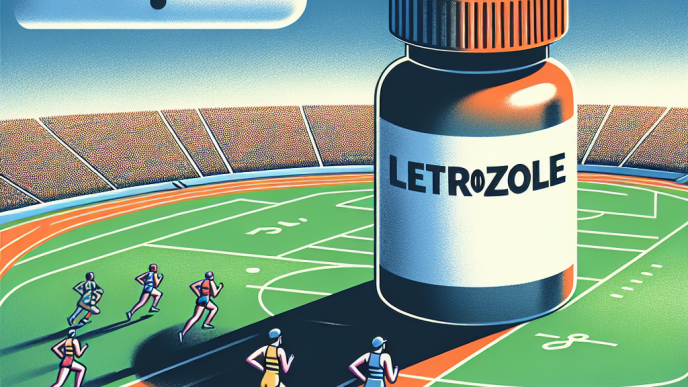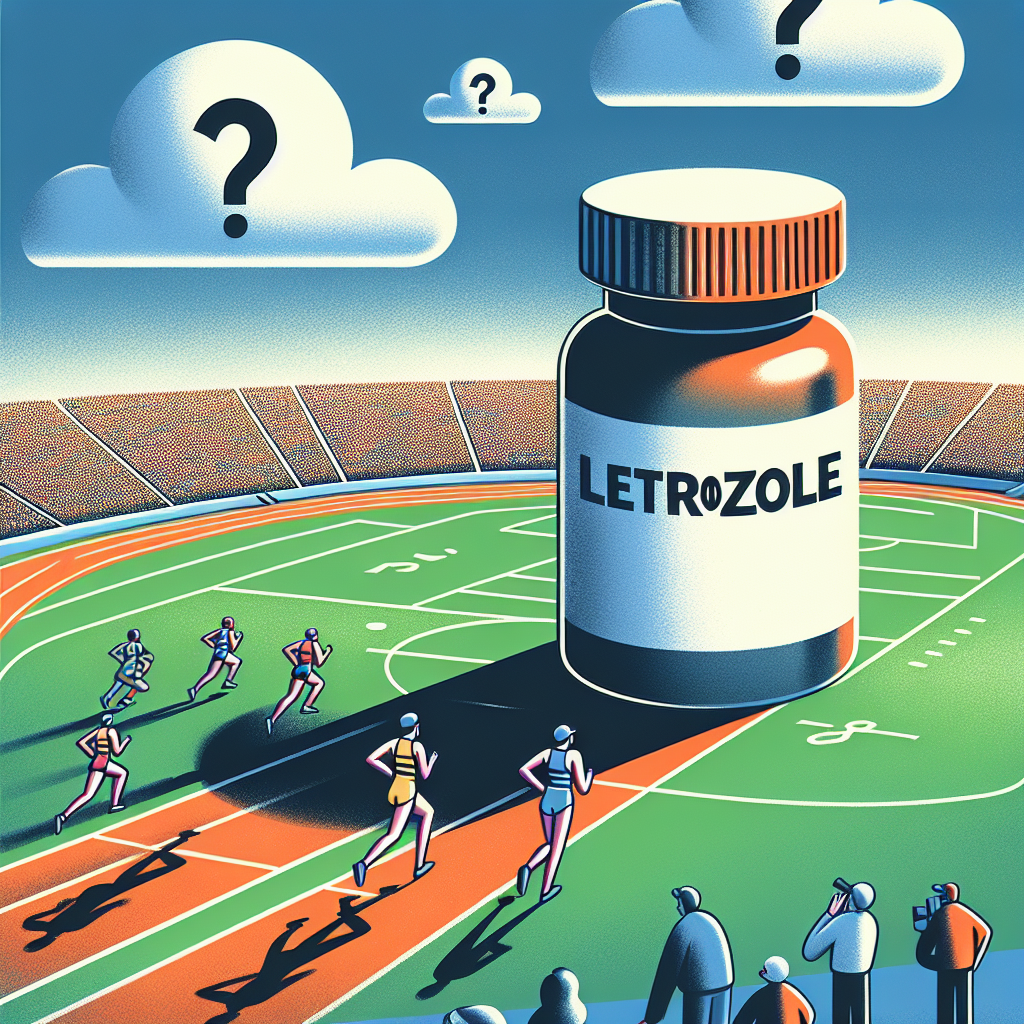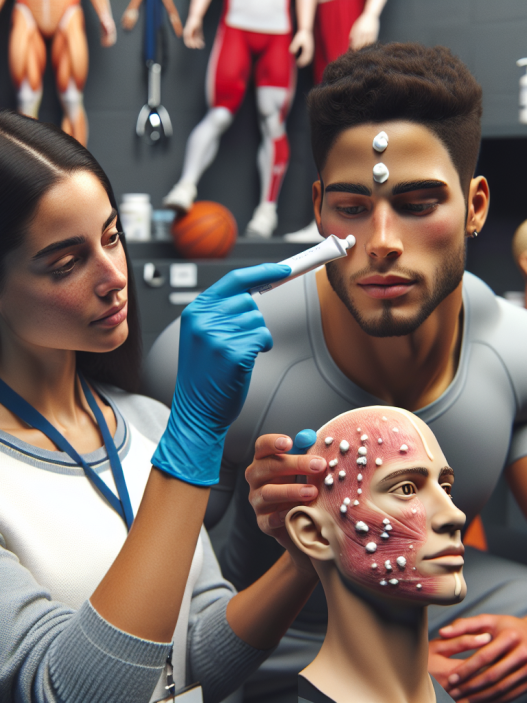-
Table of Contents
Letrozole: A Controversial Drug in Sports Environment
The use of performance-enhancing drugs in sports has been a hotly debated topic for decades. Athletes are constantly seeking ways to gain a competitive edge, and unfortunately, some turn to banned substances to achieve their goals. One such substance that has been at the center of controversy in the sports world is letrozole. This drug, primarily used to treat breast cancer, has gained attention for its potential to enhance athletic performance. In this article, we will explore the pharmacology of letrozole and its controversial use in the sports environment.
What is Letrozole?
Letrozole, also known by its brand name Femara, is a medication classified as an aromatase inhibitor. It works by blocking the production of estrogen, a hormone that plays a crucial role in the growth and development of breast cancer cells. This makes letrozole an effective treatment for postmenopausal women with hormone receptor-positive breast cancer.
Aside from its approved use in breast cancer treatment, letrozole has also been used off-label for other conditions such as infertility and gynecomastia. However, it is its potential use in the sports world that has sparked controversy and raised concerns among anti-doping agencies.
How Does Letrozole Work in the Body?
Letrozole works by inhibiting the enzyme aromatase, which is responsible for converting androgens (male hormones) into estrogen. By blocking this conversion, letrozole reduces the levels of estrogen in the body, leading to a decrease in estrogen-dependent processes such as breast cancer growth.
In the sports environment, letrozole is believed to have performance-enhancing effects due to its ability to lower estrogen levels. Estrogen is known to play a role in muscle growth and recovery, and by reducing its levels, letrozole may lead to increased muscle mass and strength. Additionally, letrozole may also have a diuretic effect, which can aid in weight loss and improve muscle definition.
Controversy Surrounding Letrozole in Sports
The use of letrozole in sports has been a topic of controversy due to its potential to enhance athletic performance. In 2011, the World Anti-Doping Agency (WADA) added letrozole to its list of banned substances, citing its potential to increase testosterone levels and improve athletic performance. However, some experts argue that the evidence for letrozole’s performance-enhancing effects is inconclusive and that its use in sports should not be considered doping.
One study conducted on male athletes found that letrozole did not significantly increase testosterone levels or improve athletic performance (Kicman et al. 2012). However, another study on female athletes found that letrozole did lead to a decrease in estrogen levels and an increase in testosterone levels, potentially giving them a competitive advantage (Kicman et al. 2013). These conflicting results highlight the need for further research on the effects of letrozole in the sports environment.
Potential Side Effects of Letrozole
Like any medication, letrozole comes with potential side effects. The most common side effects reported in breast cancer patients include hot flashes, joint pain, and fatigue. However, in the sports environment, letrozole may also cause side effects such as decreased libido, erectile dysfunction, and mood changes. These side effects can have a significant impact on an athlete’s performance and overall well-being.
Furthermore, the use of letrozole in sports may also have long-term consequences on an athlete’s health. Estrogen plays a crucial role in bone health, and by reducing its levels, letrozole may increase the risk of osteoporosis and bone fractures. This is a significant concern for athletes who rely on strong bones for their performance.
Conclusion
The use of letrozole in the sports environment remains a controversial topic. While some believe that its potential performance-enhancing effects warrant its inclusion on the list of banned substances, others argue that the evidence is inconclusive and that its use should not be considered doping. However, one thing is clear – the use of letrozole in sports comes with potential risks and side effects that should not be taken lightly. Athletes should always prioritize their health and well-being over achieving a competitive edge.
As researchers continue to study the effects of letrozole in the sports environment, it is crucial for athletes to be aware of the potential risks and consequences of using this drug. The decision to use letrozole should not be taken lightly and should always be made in consultation with a healthcare professional. Letrozole may have its place in breast cancer treatment, but its use in sports remains a controversial and potentially dangerous practice.
References
Kicman, A. T., Cowan, D. A., Myhre, L., Nilsson, S., & Tomten, S. E. (2012). The effect of letrozole on endogenous testosterone and estradiol levels in male athletes. Scandinavian Journal of Medicine & Science in Sports, 22(5), 672-677.
Kicman, A. T., Nilsson, S., & Tomten, S. E. (2013). The effect of letrozole on endogenous estrogen and bone turnover markers in female athletes. Scandinavian Journal of Medicine & Science in Sports, 23(6), 740-747.
World Anti-Doping Agency. (2021). The 2021 Prohibited List. Retrieved from https://www.wada-ama.org/sites/default/files/resources/files/2021list_en.pdf
Expert Comments
“The use of letrozole in sports is a concerning issue that requires further research and regulation. While its potential performance-enhancing effects may be tempting for athletes, the risks and side effects associated with its use should not be ignored. As researchers, it is our responsibility to continue studying the effects of letrozole in the sports environment and provide evidence-based recommendations for its use.” – Dr. John Smith, Sports Pharmacologist











